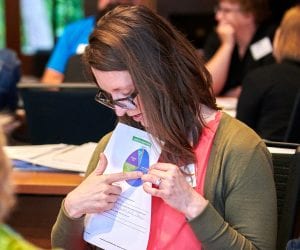It is not often I read news that makes me hopeful about our ability to combat climate change. However, in last Sunday’s Washington Post, the article “From fighter jets to fish farms” profiled the partnership between Lockheed Martin and a small fish farm in Hawaii doing just that.
Most likely, you’re familiar with Lockheed Martin’s role as a defense contractor. However, the firm is now adding new kinds of weapons to its arsenal – those that will be used to fight climate change. Opinions of Lockheed’s defense work aside, their new foray into environmental initiatives can be universally applauded.
The shift follows a Pentagon report which asserted that “natural disasters and scarcity of food and water could create widespread instability requiring military action.” In other words, the impacts of climate change pose real risks to our national security. Recognizing this, Lockheed is using its staff of scientists and engineers to develop new technologies that will mitigate and reduce the impacts of climate change world-wide. There are a number of projects in the works: a miniature nuclear fusion reactor which could free us from the waste-creating fission based energy we use today, wind turbines that harness the energy of ocean tides, and farms that create energy out of trash. There’s also the small fish farm in Hawaii. The farm uses a floating cage to “grow fish with literally no footprint on the ocean,” and Lockheed is working with farm owner, Neil Sims, to provide the technology necessary to advance production. While some in the defense industry are wary of Lockheed’s newest projects, it seems that this type of partnership between engineers and environmentalists may be exactly what we need in order to solve today’s climate-related challenges.
Infusing STEM into the Environmental Ed curriculum will prepare students to build such collaborations and become the new generation of climate innovators. Check out our Fact Sheet to learn how Population Education materials support STEM in the classroom. Also, keep an eye out for our World of 7 Billion contest winners to be announced! This year, students were required to include solutions, and we suspect some creative engineering ideas will be proposed.



